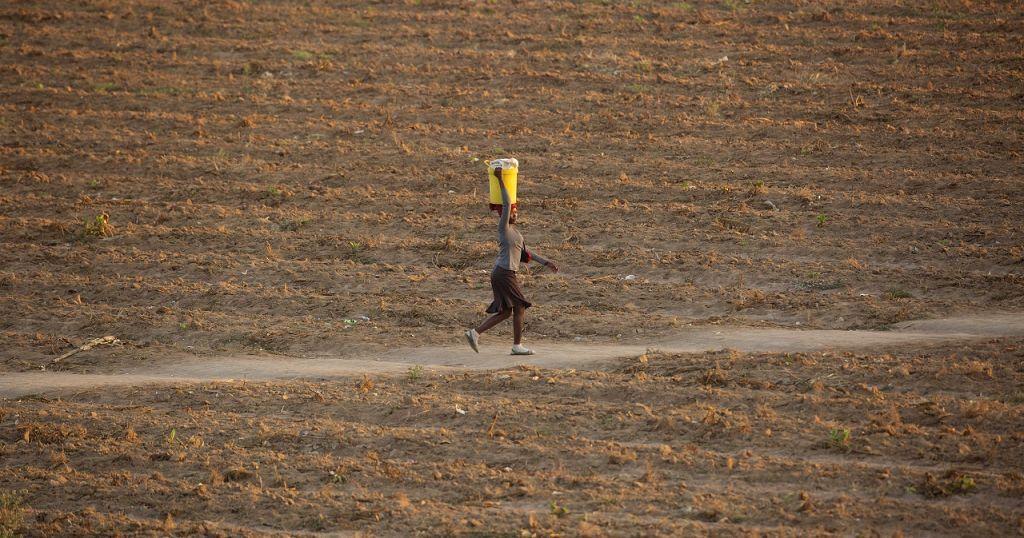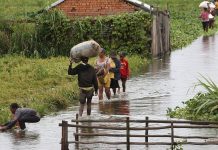Africa-Press – Mauritius. The El Niño climate phenomenon is intensifying the global climate crisis, leading to more frequent and severe droughts, floods, and tropical cyclones. The current El Niño event is among the five strongest on record, causing significant weather pattern disruptions worldwide.
In Southern Africa, severe drought conditions have left millions hungry, affecting a region where 70% of the population relies on agriculture. Meanwhile, in Kenya, Somalia, Burundi, and Tanzania, heavy rains and flash floods have impacted nearly 850,000 people, destroying crops, killing livestock, and displacing communities.
Afghanistan has faced massive floods due to unusually high rainfall following a dry winter. The floods, starting in March, were worsened by warm temperatures melting snowpack into rivers, devastating villages. More than 80,000 people have been affected, with 180 fatalities. The World Food Programme (WFP) responded quickly, providing fortified biscuits, nutritional supplements, and later, food rations and cash assistance.
Rashmin, a local resident in Afghanistan, shared her harrowing experience:
In Southern Africa, Malawi, Zambia, and Zimbabwe have declared national emergencies due to drought, with nearly five million people needing assistance.
Gernot Laganda, WFP’s Director of Climate and Resilience, highlighted the urgency:
In the Democratic Republic of the Congo, heavy rains have caused rivers and lakes to overflow, devastating towns and farmlands, cutting off trade routes, and leading to food scarcity and rising hunger. Over one million people are affected, with WFP providing food assistance in the worst-hit areas.
El Niño, coupled with the broader climate crisis, is increasing the frequency and severity of extreme weather events, exacerbating vulnerabilities from conflict, food price increases, and other shocks. Although El Niño is expected to transition to neutral conditions by mid-2024, its impacts will persist, potentially followed by La Niña, the cooling phase of the climate cycle.
WFP, alongside partners, is offering emergency assistance and working with governments to enhance social protection systems and school meal programs. In Malawi, WFP aims to assist 2.1 million people through in-kind aid and cash transfers, highlighting the urgent need for funding to address regional cereal deficits.
Proactive measures by WFP, such as anticipatory action plans and early warning systems, have proven crucial. For instance, in Somalia, WFP provided anticipatory cash and warnings to over 200,000 people ahead of severe floods. In Zambia and Zimbabwe, nearly 280,000 people received assistance thanks to a $9.4 million insurance payout from the African Risk Capacity (ARC) Replica.
Effective defenses against El Niño and climate-related disasters require integrated resilience programs, combining early warning systems, financial safety nets, and ecosystem-based solutions like soil regeneration and reforestation. These measures help communities prepare for and mitigate the impacts of climate shocks, rather than relying solely on emergency responses.
Source: Africanews
For More News And Analysis About Mauritius Follow Africa-Press







